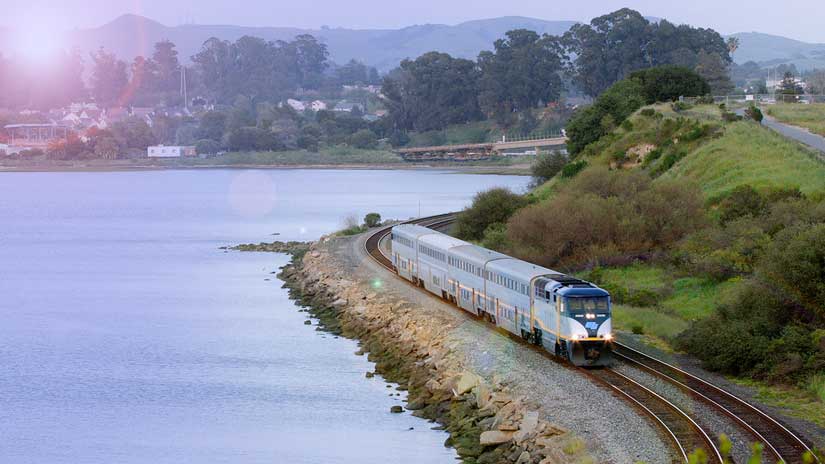In response to the gradual opening of businesses and activities in the region, and to continue supporting the travel needs of essential workers, the Capitol Corridor will add back some of the service it was forced to reduce in March when shelter-in-place orders went into effect. The updated schedule is available on the Schedules page of the Capitol Corridor website.
On Monday, June 1, the Capitol Corridor will increase its current train schedule frequency from five to eight weekday round trips, which represents just over half of the Capitol Corridor’s normal, pre-COVID weekday service level. Five of those round trips will serve stations south of Oakland Jack London Square to San Jose. Other service highlights are as follows:
- The increased rail schedule includes the return of service between Auburn and Sacramento, as well as some connecting bus trips associated with the added train service.
- Train 527 will be discontinued; however, Trains 525 and 529 are reinstated for additional westbound morning options.
- Bus service between Emeryville and San Francisco (Route 99) will remain suspended until further notice. Passengers are encouraged to use BART at the Richmond and Oakland Coliseum stations for travel to and from San Francisco, and will need to purchase a separate BART ticket or use a Clipper card to pay their BART fare. (Please note that Clipper cards are not available on the Capitol Corridor train until further notice.)
- Weekend service will remain at five round trips, and schedule times will be modified to align with ridership demand.
Since March 21, 2020, in response to the COVID-19 pandemic, the Capitol Corridor has been running five round trips, seven days a week, to accommodate those passengers who rely on the service for essential trips.
“We know many residents in Northern California rely on the Capitol Corridor for transportation service, and we believe this additional service will support the many essential activities that are continuing during the current health emergency,” said Rob Padgette, Managing Director of the Capitol Corridor. “We want to assure everyone that health and safety is our number one priority. Stringent cleaning protocols will remain in place, and customers must continue to adhere to social distancing guidelines and wear a face covering while on board trains, buses, and at stations. We will continue to track passenger demand and local health conditions as we evaluate potential future modifications in service.”
Enhanced Health & Safety Protocols
The Capitol Corridor and its operating partner, Amtrak, continue to take extra steps to sanitize stations and trains frequently. Additional measures to ensure public health and safety include the following:
- Face Coverings: As part of a commitment to protect customers and front-line employees, all customers in stations, on trains, and on connecting buses are required to wear face coverings.
- Physical Distancing: Passengers should maintain a distance of at least six feet from other people while at stations and on board trains and buses. Signage has been displayed at stations to indicate safe physical distances. Train conductors and bus drivers are available to assist riders on board with finding an appropriate seat.
- Train Lengths: Despite lower ridership and reduced service, the Capitol Corridor continues to maintain normal, pre-COVID train lengths to facilitate social distancing. Staff will be monitoring ridership daily so adjustments can be made if trains become too crowded.
- Cashless Service: As an added measure to ensure the health and safety of customers and employees, payments using cash are not permitted in stations and on trains. The safest way to purchase tickets is online at CapitolCorridor.org or via the Amtrak app. Passengers do not need a paper ticket to board the train and are encouraged to take advantage of electronic ticketing options.
- Air Filtration: To ensure the quality of air on board trains, each rail car has a dedicated HVAC system that fully exchanges air up to 22 times an hour. For the health of passengers, staff changes filters more frequently – every five days, three times faster than before.
The Capitol Corridor has and will continue to operate as an essential service as the region and nation recover. Further increases to service will be implemented by monitoring ridership demand, working with partners, and continuing to prioritize public health and safety.
The updated schedule effective June 1 will be available soon on our website. Tickets may be purchased at www.CapitolCorridor.org, Amtrak.com, and through the Amtrak app.

